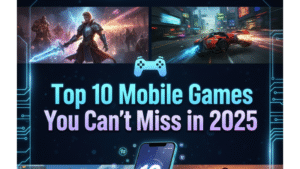In an oversaturated digital space, content without a strategy is just noise. A well-defined content strategy is your roadmap to engaging the right people at the right time with the right message.
1. Consumers Demand Value, Not Just Sales Pitches
Today’s audience is empowered. Before making a purchase, they’re researching, comparing, and seeking genuine solutions. Your content strategy meets them where they are – offering insights, entertainment, or answers to their questions. By providing value upfront, you build trust and position your brand as a helpful, credible resource, not just another seller. This authenticity is key to cutting through the noise.
2. The Digital Landscape is Visually Driven & Diverse
From short-form video dominating social feeds (think TikTok, Reels, YouTube Shorts) to interactive quizzes and immersive AR experiences, content consumption is more dynamic than ever. A strong content strategy embraces these diverse formats, ensuring your message is not only seen but also engaged with across every platform your audience inhabits. Generic text alone won’t cut it.
3. AI isn’t Replacing Marketers, It’s Empowering Them
In 2025, AI is a powerful co-pilot for content marketing. It’s revolutionizing efficiency by assisting with content ideation, drafting, personalization at scale, and optimizing distribution. This allows human marketers to focus on what they do best: injecting creativity, brand voice, and emotional intelligence into the narrative, ensuring your content truly resonates and stands out. AI helps you do more, better, and faster.
4. It Delivers Measurable ROI and Sustainable Growth
Forget “brand awareness” as the sole goal. Modern content marketing is deeply tied to performance. Through sophisticated analytics, brands can track how content drives actual conversions, generates leads, improves SEO, and increases customer lifetime value. Unlike fleeting ads, quality content becomes a long-term asset, continuously attracting new audiences and nurturing existing relationships, leading to sustainable and demonstrable business growth.
In 2025, a brand’s ability to communicate, connect, and convert hinges on its content. It’s time to invest in a strategy that builds lasting relationships and positions your brand as an indispensable resource in your audience’s lives
Key Strategy Elements:
-
Audience Personas: Who are you speaking to?
-
Content Goals: Awareness, traffic, engagement, conversion
-
Content Formats: Based on audience behavior (e.g., videos for Gen Z)
-
Content Calendar: Monthly or quarterly roadmap
-
Distribution Plan: Organic, paid, email, social, influencer
-
Metrics: What success looks like (engagement, leads, SEO ranking)
What Is a Content Marketing Strategy?
A content marketing strategy is a comprehensive plan that outlines:
-
Who your target audience is
-
What types of content to create
-
How to distribute that content
-
Which business goals it supports
-
How you’ll measure its performance
It’s about creating purposeful content—not random blog posts, social media updates, or videos.



